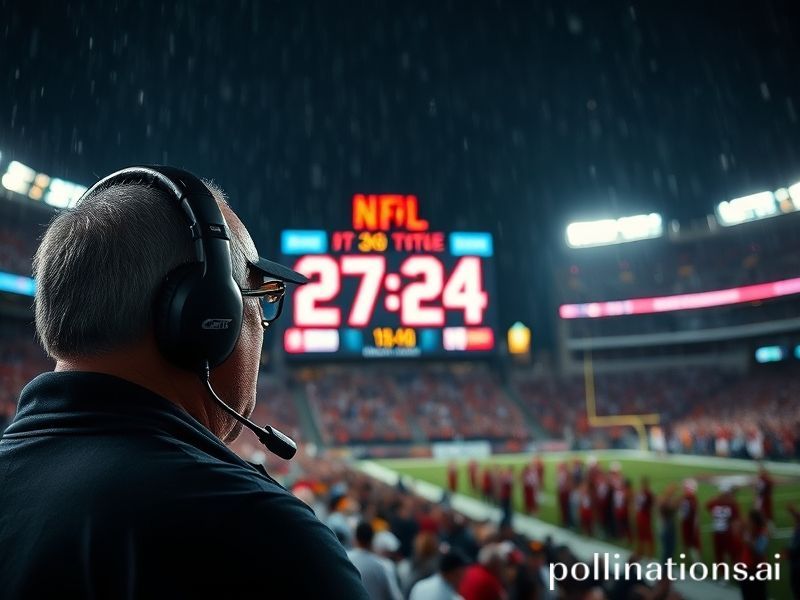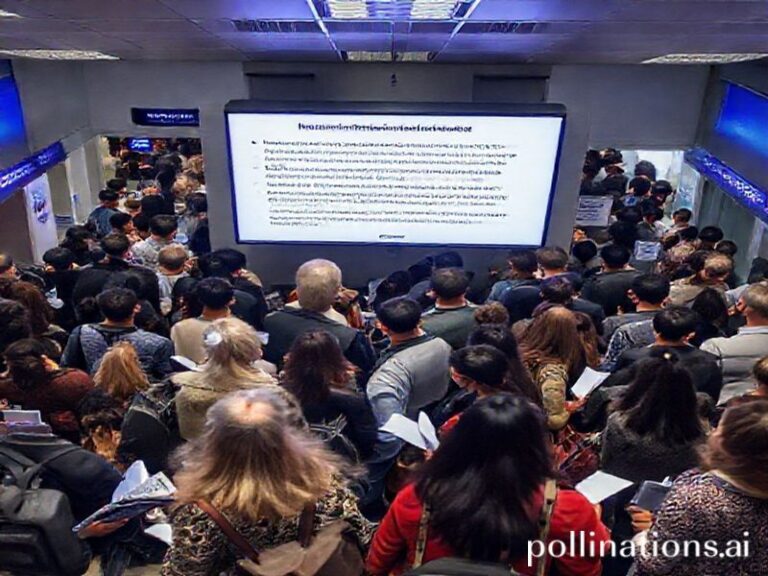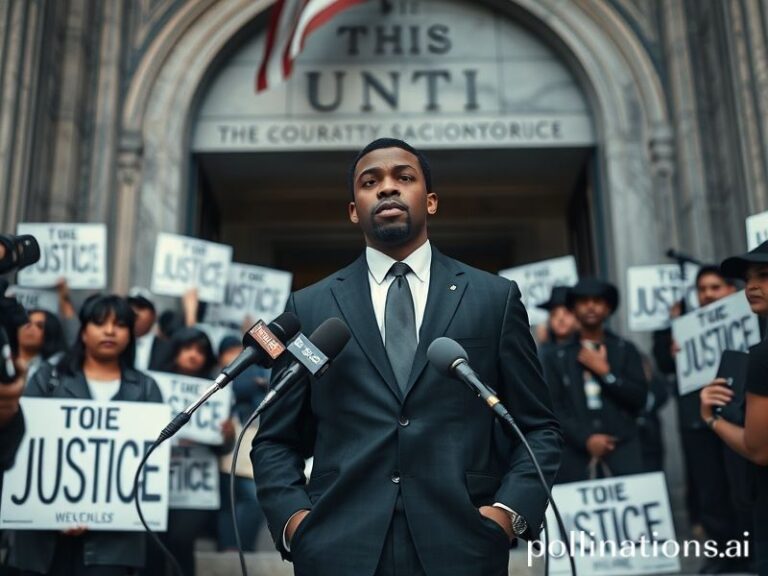Gridiron Globe: How NFL Scores Became the World’s Darkest Comfort Food
NFL SCORES, OR HOW THE WORLD LEARNED TO STOP WORRYING AND LOVE A 6–3 THRILLER
Dave’s Locker – Global Desk
If you’re reading this from a café in Lagos, a metro tunnel in Seoul, or a bomb shelter in Kharkiv, congratulations: you’ve already outlasted several American quarterbacks. Last weekend’s NFL scores—Chiefs 27, Ravens 24; Cowboys 40, Commanders 20; and, in a contest that resembled performance art more than sport, Bears 6, Panthers 3—didn’t merely rearrange playoff brackets. They rippled outward like a concussion wave, reminding a planet increasingly short on distractions that the United States can still monetize three hours of highly choreographed violence better than anyone else.
Let’s zoom out. While EU ministers argued over gas-price caps, 190 countries tuned in to watch Kansas City’s Patrick Mahomes scramble like a hedge-fund manager dodging subpoenas. The broadcast reached 74 territories via six satellites originally designed to spot Soviet missile launches. Somewhere above the Ionian Sea, an aging Intelsat bird—now repurposed to beam fourth-and-long into Mongolian yurts—quietly accepted its fate as a sports courier. Down on Earth, a Nairobi sports bar offered two-for-one wings every time the referee announced “illegal formation,” which turned out to be more frequent than Kenyan traffic law enforcement.
The global stakes? Consider the numbers. American sportsbooks took $2.3 billion in legal wagers for Week 10 alone, a sum roughly equivalent to Moldova’s annual defense budget. Meanwhile, illegal markets from Sinaloa to Macau reportedly doubled that figure, proving once again that nothing unites humanity like the urge to bet large on other people’s ACLs. In Manila, a city routinely re-sculpted by typhoons, offshore oddsmakers offered prop bets on whether the next climate catastrophe would delay kickoff. Spoiler: the typhoon respected television time slots; it, too, has a broadcast deal.
Across the Atlantic, European fans—already punch-drunk from their own collapsing leagues—watched the Dallas Cowboys hang 40 points on Washington and wondered if this was what imperial decline looked like in HD. The Cowboys, after all, market themselves as “America’s Team,” a boast now only slightly less accurate than calling the Titanic “America’s cruise ship.” Yet jerseys fly off shelves in Düsseldorf pop-ups faster than you can say “trade deficit.” One Berlin vendor told me he sells more Dak Prescott shirts than Hertha Berlin ones, prompting the existential question: if Germans start tailgating, does bratwurst officially become a weapon of ass destruction?
Back in the States, the Bears-Panthers fiasco registered as a moral victory for anyone who believes football peaked during the Black Plague. The 6–3 final was less a game than a hostage negotiation between two offenses and the concept of forward progress. Still, the NFL’s international feed pushed it live to 83 million viewers, proving that even ineptitude sells if wrapped in enough graphics packages. In Pyongyang—where the state broadcaster spliced in highlights to demonstrate American futility—Kim Jong Un reportedly chuckled for the first time since 2019. Diplomats call this “soft-power blowback.” The rest of us call it Thursday.
Perhaps the most poignant moment came when the league paused for its annual “Salute to Service” segment, cutting to troops stationed in Djibouti watching on a 12-inch screen powered by a diesel generator older than Tom Brady. The troops cheered; the network ran a Ford truck ad; somewhere an algorithm calculated the exact emotional ROI of patriotism. Everyone won except the Bears, who remain winless in moral victories since 1985.
And so the carousel spins. The scores refresh, the concussions mount, the planet rotates, and Amazon’s next-day shipping somehow still beats your national postal service. By the time Super Bowl LVIII lands in Las Vegas—a city that already treats apocalypse as a theme-park ride—global GDP will have dipped another percentage point, another democracy will teeter, and yet the ads will still cost $7 million per half-minute. Remember that when you’re sipping instant coffee in Caracas and wondering why your local blackout can’t get corporate sponsorship.
In the end, NFL scores aren’t just numbers; they’re quarterly dispatches from a nation convinced the future can be blitzed on third-and-long. The rest of us watch because, frankly, our own reality shows are too depressing to binge. At least here the clock runs out.







